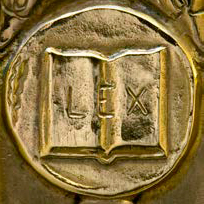Law, College of

Nebraska Law Bulletin (Selected Issues)
Date of this Version
2-9-2023
Document Type
Article
Citation
Nebraska Law Bulletin (February 19, 2023)
Abstract
The Nebraska Legislature is considering a bill–Legislative Bill 753 (L.B. 753)–that would provide a non-refundable, 5-year carry-over tax credit for donations to qualifying scholarship-providing organizations. To qualify, the scholarship organization must provide qualifying education scholarships. Those qualifying education scholarships must be used to pay tuition and fees at a qualifying school. Qualifying schools are “any nongovernmental, privately operated elementary or secondary school located in this state.” The state administers the issuance of the tax credits through a program that keeps the budgeted caps in place. The program starts with a $25 million cap that gradually expands to $100 million if people take advantage of the program. This legislation is part of a national effort to enhance school choice by extending public support to private schools.
This article addresses whether such a program violates article VII, section 11 of the Nebraska Constitution. This article does not delve into the Free Exercise or Establishment Clause issues under the United States Constitution associated with denying otherwise available private-school funding to religious institutions through tax provisions or other forms of government spending. But for one small exception, this article does not discuss other restraints under the U.S. Constitution that may affect the bill. This article also does not discuss other states’ constitutions and case law. While appropriate in a long-form article, addressing other states’ approaches to their constitutional language and history is marginally relevant. Each state uses its own language and has its own constitutional history to consider. Therefore, this article focuses on Nebraska. For those interested in other states’ experience in similar circumstances, a collection of relevant materials is included in the notes below. Finally, for the sake of brevity, this article focuses solely on one of Nebraska’s constitutional provisions and the extant Nebraska case law on the subject. It does not address possible arguments under the Nebraska Constitution’s other provisions, including the preference for general laws, our religion provisions, our due-process and equal-protection provisions, or our obligation to provide a free education in the state’s common schools.


Comments
Copyright 2023, the author